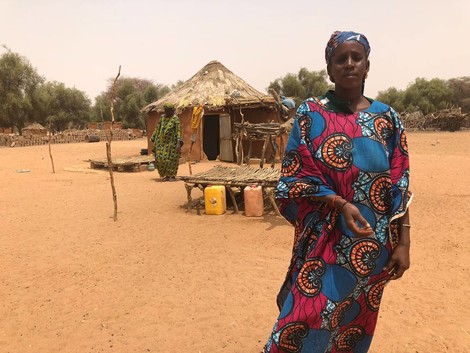Your podcast discovery platform
Curious minds select the most fascinating podcasts from around the world. Discover hand-piqd audio recommendations on your favorite topics.

piqer for: Climate and Environment Global finds Globalization and politics
I'm a freelance journalist, currently based in Madrid. I used to be a News Producer at CNBC in London before, but I thought a little bit more sun might do me good. Now I write for several news organizations, covering a range of topics, from Spanish politics and human rights for Deutsche Welle to climate change for La Marea.
The Unexpected Effects Of Climate Change: Breaking Patriarchy In Mauritania
When we say that climate change is here and that it's already disrupting our societies, we often get strange looks. Everything seems to still be business as usual! And it is, for many of us, particularly for those living in cities in the first world. But there are many people out there whose traditional lifestyles are already being turned upside down. But, sometimes, these changes are what we least expect. Like this time.
In arid Mauritania, as in much of the Sahel, drought is the most noticeable effect of global warming. Areas of the country still rely on traditional pastoralism to subsist. In these communities, men and their herds would leave their villages in the fall (around October), to find water and pastures for the livestock. Women would stay behind, taking care of the town.
As climate change has made rains scarcer and more erratic, men have started to leave months earlier. This has strained their work and affected their lives, but it has also opened a window of opportunity for the women in the village: As their responsibilities have grown, so has their power.
"I am in charge of everything," she told the Thomson Reuters Foundation, sitting in the shade of a mud-brick hut in Mafoundou village.
And as their power grows, so does their organization. Despite the fact that Mauritanian rural societies are still blatantly sexist, women have established self-governed associations to lobby the country's government issues that affect their economy:
"We tell them where an animal clinic might be needed, or which markets are best for specific kinds of animals," she explained.
The Thomson Reuters Foundation has been publishing some excellent climate reporting lately. I have been saving quite a few pieces for piqd, but for one reason or another I always end up choosing another. I couldn't go past this story by Zoe Tabary, though, which has caught my imagination from the start. Excellently written and sourced, respectful and positive.
There sometimes is a bright side to disaster.
